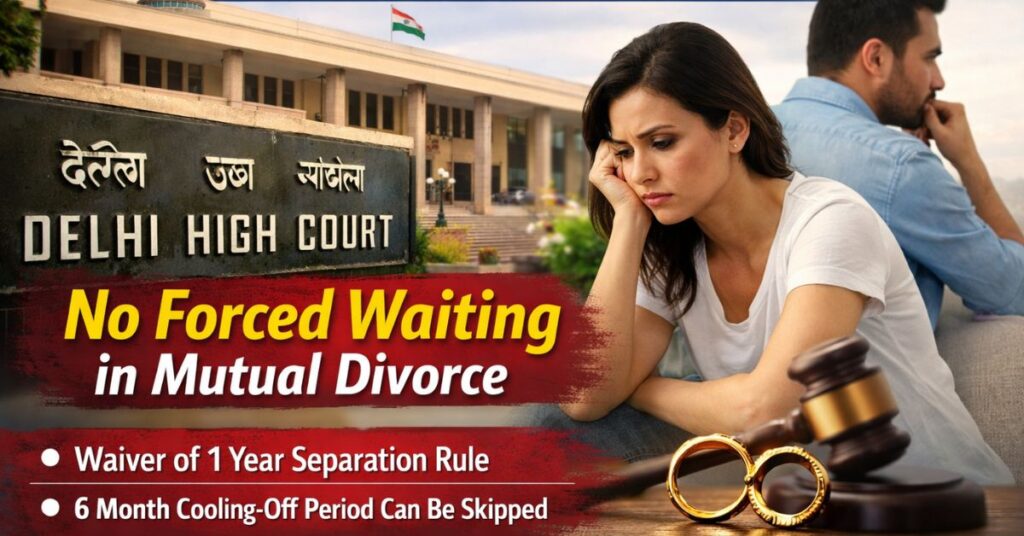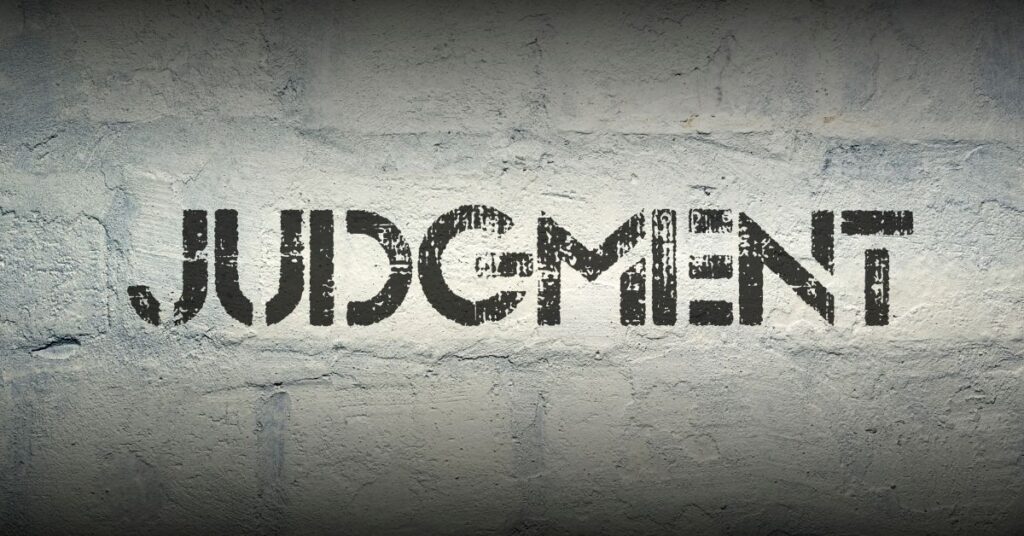Discover the significance of Section 14 of the Hindu Marriage Act and its exceptions for ‘exceptional hardship’ and ‘exceptional depravity’ as ruled by the Hon’ble Delhi High Court in MAT.APP. (F.C.) 110/2021 (RISHU AGGARWAL vs MOHIT GOYAL). Explore the interpretations, implications, and the role of the one-year separation period in divorce proceedings.
Table of Contents
Introduction
Section 14 of the Hindu Marriage Act, an essential piece of legislation governing marriages in India, holds immense significance in determining the validity and legality of certain marriages. The interpretation and application of this section by the Delhi High Court have shed light on its scope, exceptions, and implications. In this article, we delve into the intricacies of Section 14 of the Hindu Marriage Act and explore its interpretation as ruled by the esteemed Delhi High Court.
Understanding Section 14 of the Hindu Marriage Act
Section 14 of the Hindu Marriage Act states that no court can entertain a petition for divorce within one year of marriage, unless at least one year has passed since the date of marriage. However, there is a provision that allows the court to consider a petition presented before one year has elapsed if the petitioner can demonstrate exceptional hardship or exceptional depravity on the part of the respondent.
If the court grants permission to present the petition before one year, but later finds that the petitioner obtained permission through misrepresentation or concealment of facts, the court may impose certain conditions on the divorce decree or dismiss the petition altogether. The conditions may include delaying the effect of the decree until after one year from the date of marriage.
When deciding whether to grant permission for early divorce, the court takes into account the interests of any children involved and the likelihood of the parties reconciling before the one-year period is over.
Brief Facts of the Case
The appellant and the respondent got married on 04.04.2021 as per Hindu rites and ceremonies in Ram Nagar, Uttarakhand. The appellant later shifted to the respondent’s matrimonial home in Faridabad, Haryana. Marital differences arose between the parties soon after the marriage, and they started living separately within the same house from 14.04.2021 onwards. Eventually, on 29.07.2021, the appellant left the matrimonial home and returned to her parental house in Rohini, Delhi. The couple hardly lived together as husband and wife, and no children were born out of the marriage.
Despite efforts from their parents, relatives, and friends to save the marriage and reconcile their differences, the parties were unable to resolve their issues. Consequently, they decided to seek a divorce by mutual consent and executed a Memorandum of Understanding (MOU) on 16.09.2021, settling their disputes and agreeing to cooperate with each other for the dissolution of their marriage.
Both parties returned/exchanged the articles given to each other at the time of marriage, and the appellant’s belongings and stridhan were returned by the respondent. In accordance with the MOU, the parties filed a joint petition under Section 13B(1) of the Hindu Marriage Act, 1955, seeking dissolution of their marriage by mutual consent. They also filed an application under the proviso to Section 14 of the Act, requesting permission to present the petition before the expiry of the cooling-off period of one year from the date of marriage.
In the application, the appellant sought to satisfy the requirements of the proviso to Section 14 by stating that the denial of sex from both sides caused exceptional hardship/depravity, justifying the consideration of their case. The appellant argued that the continuation of the marriage would cause undue hardship to both parties, and they had no inclination to interact further or resume cohabitation. They asserted that the divorce petition and the application under Section 14 were not frivolous, and there was no misrepresentation or concealment. They also cited relevant judgments to support their case.
- The the learned Principal Judge, Family Court, North District, Rohini Courts, Delhi dismissed the application under Section 14 of the Hindu Marriage Act, stating that the parties failed to establish a situation of exceptional hardship or exceptional depravity. Dissatisfied by the order, the parties filed the present appeal before Hon’ble Delhi High court under Section 19 of the Family Courts Act, 1984, seeking to quash and set aside the judgment passed by the learned Principal Judge, Family Court, North District, Rohini Courts, Delhi.
Hon'ble Delhi High Court's Analysis

The Hon’ble Delhi High Court analyzed Section 14 of the Hindu Marriage Act as follows:
Section 14: Significance and Precedence
Section 14 holds paramount importance within the framework of the Hindu Marriage Act, superseding any conflicting provisions. It establishes a minimum time period and conditions that must be fulfilled before waiving the waiting period. Notably, Section 13B, subject to the provisions of the Act, including Section 14, reiterates the prominence of Section 14. These regulations are applicable to divorce petitions filed under both Section 13 and Section 13B of the Act.
Purpose of the One-Year Separation
The requirement of a one-year separation period before filing a divorce petition by mutual consent (Section 13B) serves a crucial purpose. It ensures that couples experience a substantial period of separation, allowing them to reconsider their decision and explore possibilities of resolving their differences. This provision safeguards against impulsive decisions made in moments of emotional distress. Divorces based on mutual consent should be the result of thoughtful consideration and contemplation of the relationship’s future. Therefore, tampering with this one-year period in ordinary circumstances would undermine the intention of the legislature and the overall framework of Section 13B.
Exceptions: "Exceptional Hardship" and "Exceptional Depravity"
While adhering to the cooling-off period is the general rule, Section 14 incorporates exceptions for cases involving “exceptional hardship” and “exceptional depravity.” These exceptions acknowledge the evolving constitutional jurisprudence that emphasizes individual autonomy and personal dignity. The legislature introduced the proviso to Section 14 to cater to such exceptional circumstances. However, it is crucial to establish the presence of “exceptional hardship” or “exceptional depravity” based on the unique facts and circumstances of each case.
Interpreting "Exceptional Hardship" and "Exceptional Depravity"
To comprehend the meanings of these terms, it is essential to consider their linguistic definitions and legal implications. “Exceptional” refers to something uncommon, extraordinary, or highly unusual. “Depravity” denotes immoral behavior or wickedness lacking moral decency. On the other hand, “hardship” encompasses severe suffering or significant adversity. It is important to note that temperamental differences or the denial of a conjugal relationship, including sexual activity, do not necessarily qualify as exceptional hardship or exceptional depravity. Acts such as rape, sodomy, or bestiality, as mentioned in Section 13(2)(ii), may be categorized as exceptional depravity.
Hon'ble Delhi High Court's Decision
Hon’ble Delhi High Court rejected this appeal and upheld the order of the Family Court, which had rejected the application filed by the parties under the proviso to Section 14 of the Hindu Marriage Act, 1955.
The Hon’ble Delhi High Court, while expressing due respect, disagreed with the view taken by the High Court of Punjab and Haryana in Shivani Yadav v. Amit Yadav. This case had similar circumstances to the present appeal, and the Hon’ble High Court of Punjab and Haryana had granted mutual divorce to the parties before one year of marriage.
Conclusion
Section 14 of the Hindu Marriage Act plays a crucial role in determining the validity and legality of marriages in India. The interpretation of this section by the Delhi High Court has provided valuable guidance and clarity, ensuring a fair and just approach in dealing with issues related to void marriages. By understanding the scope, exceptions, and implications of Section 14, individuals can make informed decisions and protect their rights within the framework of Indian marriage laws.



